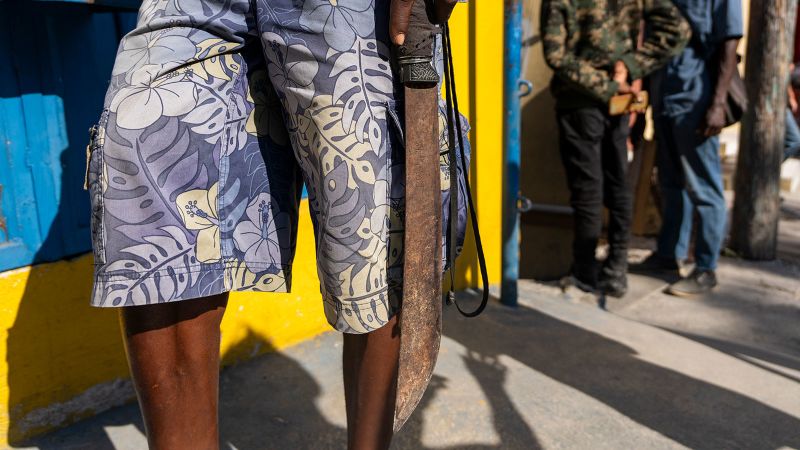A woman hustles her young child into a waiting car, half-dragging him as she shields his eyes. Other family members follow with heavy suitcases, averting their eyes too. They’re leaving the city, even though the drive through gang-controlled roads is risky.
The reason lies in the street before their house: A burned corpse; the remains of a suspected gang member killed by their neighbors. His knees are bent and torso pitched forward as if in supplication, metal wires wrapped around the charred flesh. This is the fourth such corpse CNN has seen in two days.
Just up the hill, another mother is rushing toward a waiting helicopter holding her infant. Eyewitnesses tell CNN that she left her car seat behind, urged to move quickly by armed guards. The unauthorized helicopter landing is attracting attention; video of the flight shows a fight breaking out on the ground as the chopper lifts off.
They’re fleeing anarchy. Until yesterday, people like these were the holdouts; the ones who had a choice but stayed until Port-au-Prince became unbearable. Now even they are leaving amid an unprecedented frenzy of terror in the Caribbean nation.
For three weeks, Haiti’s capital has been trapped in a gory cycle that far exceeds the kidnapping and gang violence for which it was already known. An insurgent league of heavily armed gangs is waging war on the city itself, seeking new territory and targeting police and state institutions. Scared and angry, vigilante groups are blocking off their neighborhoods with felled trees and chains, killing and burning outsiders suspected of gang membership. It’s the only way, they say, to defend themselves.
Human remains are lying in the streets, yet the multinational security mission long touted by Haiti’s neighbors as a game-changer for its gang problem is nowhere to be found.



Wasn’t it well into the 90s even?